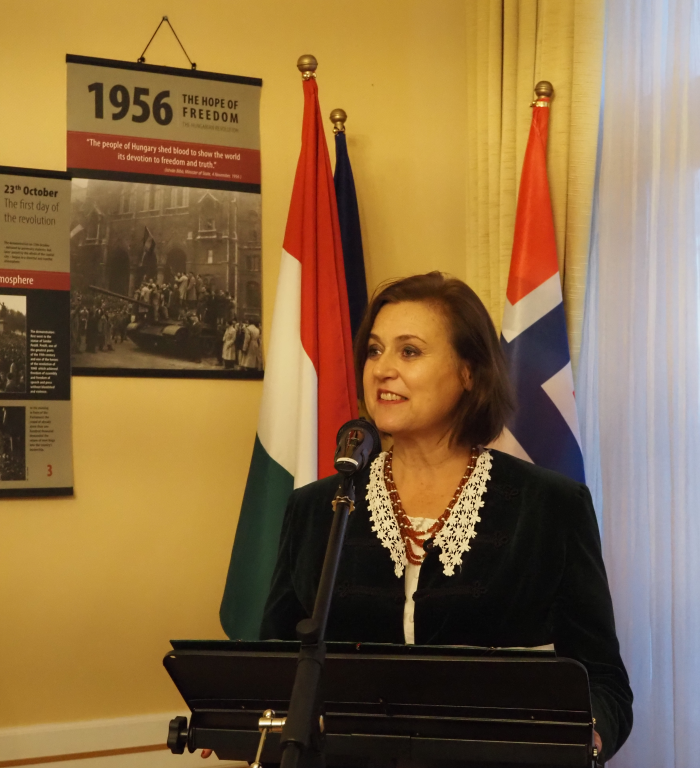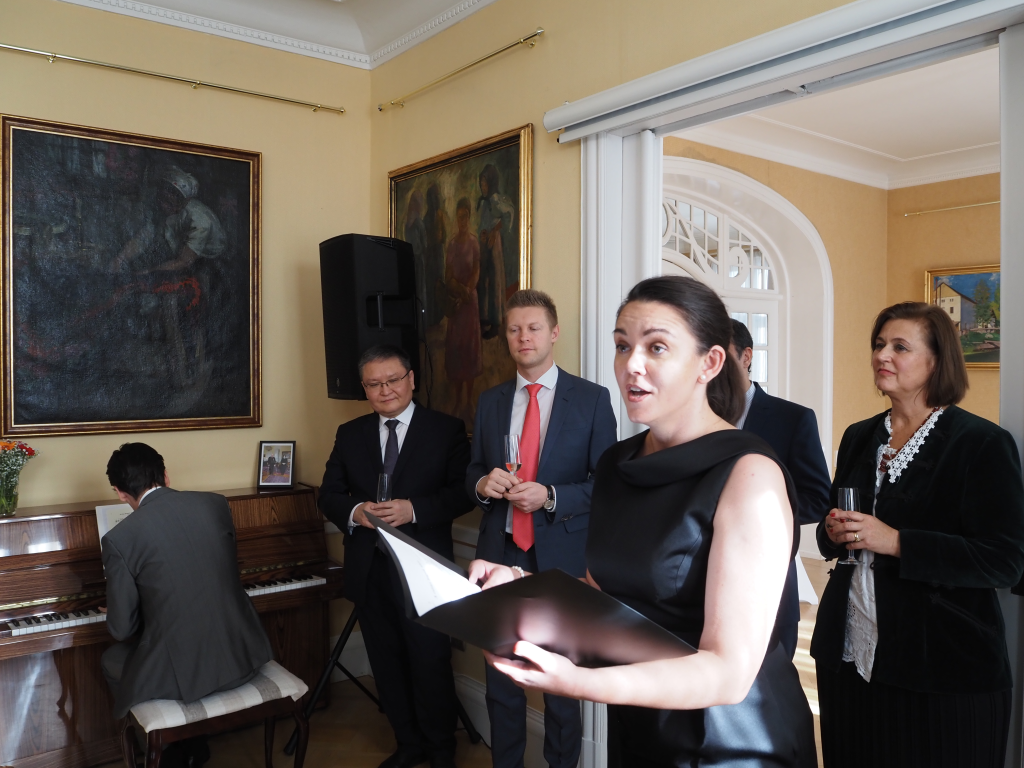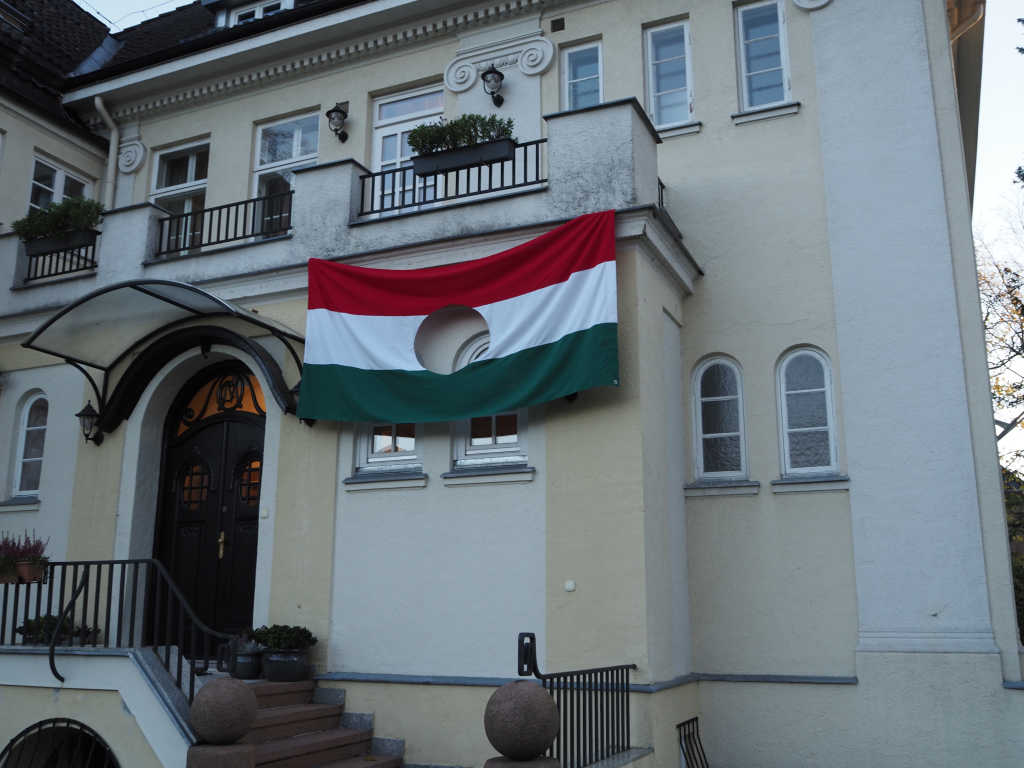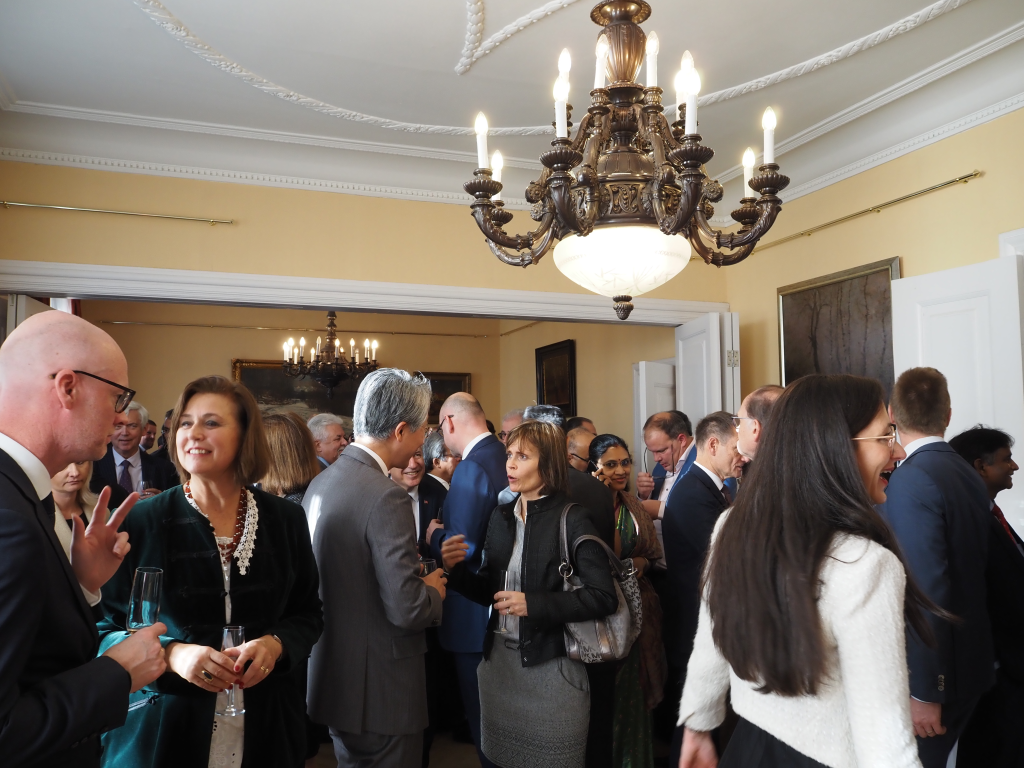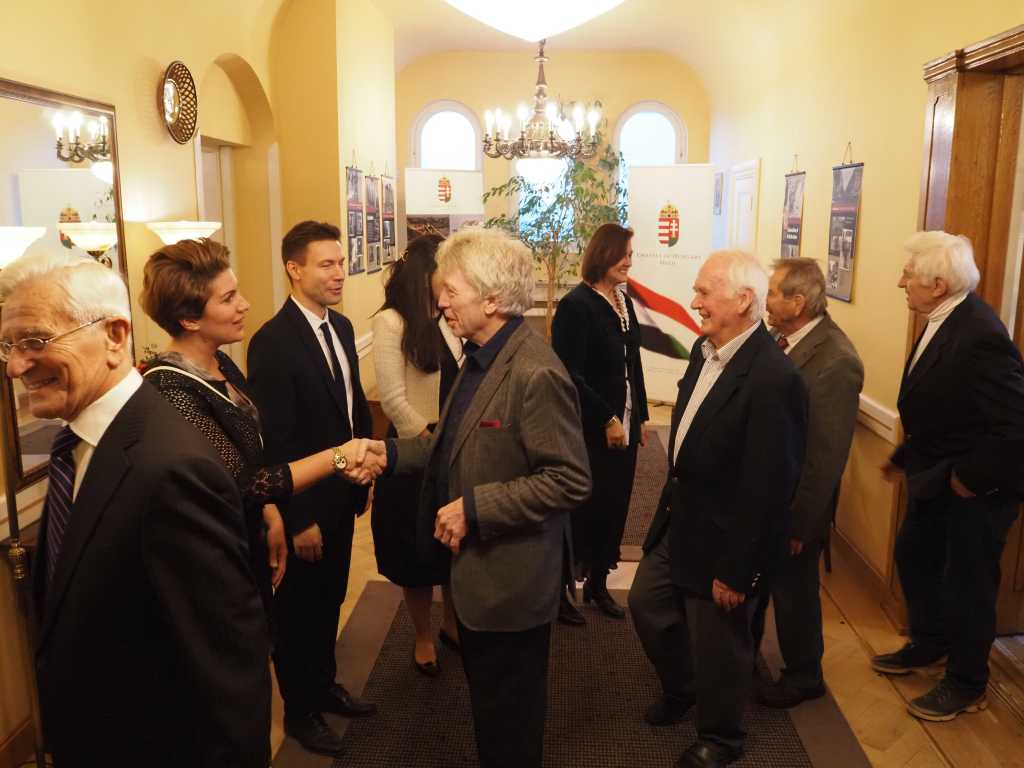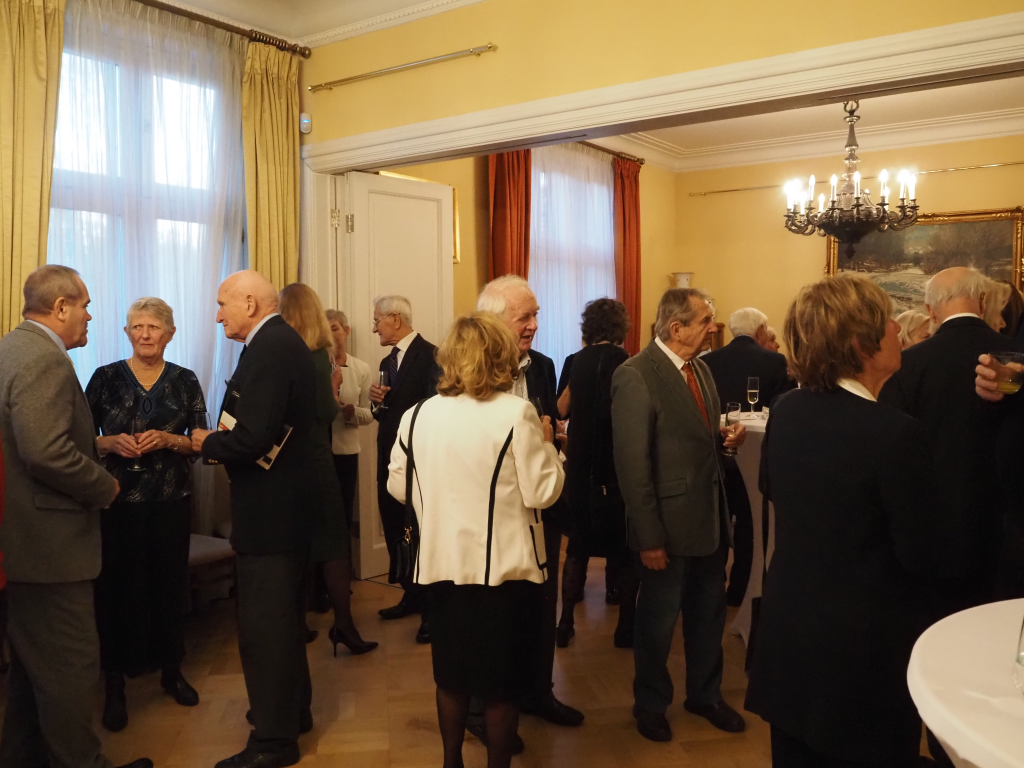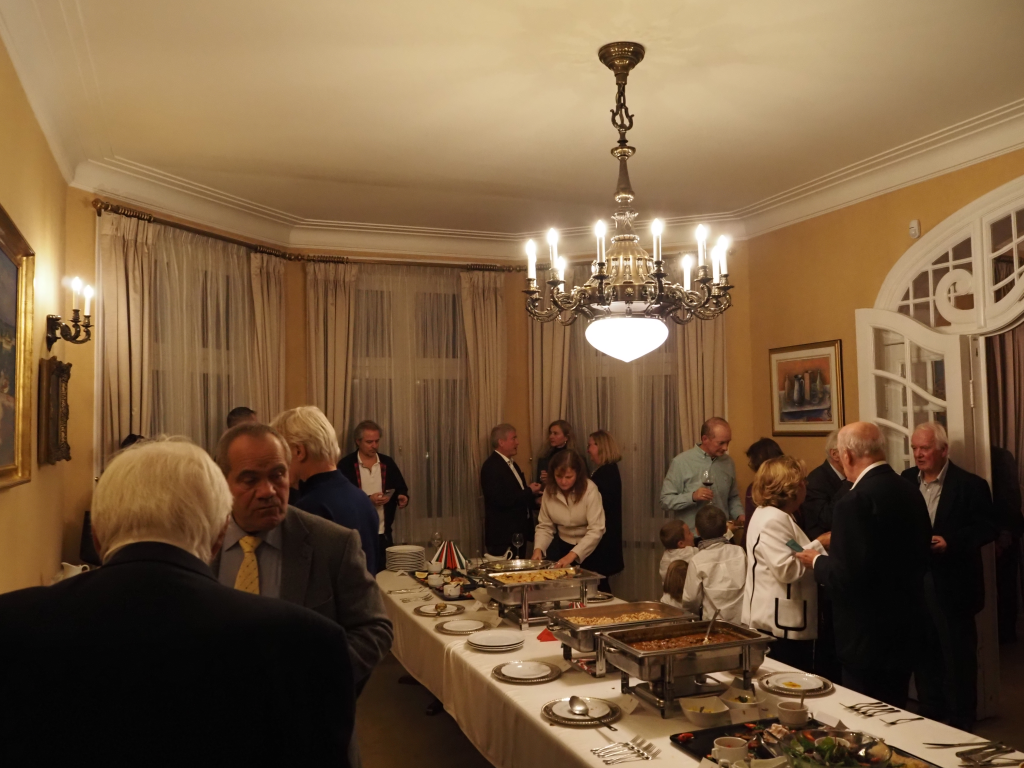It was a great pleasure to welcome the representatives of the Royal Norwegian Ministry of Foreign Affairs, business and civil representatives of Norway, the members of the diplomatic corps and the Hungarian diaspora at our embassy to commemorate the 65th anniversary of the Hungarian Revolution and War of Independence of 23 October 1956.
The opening speech of H.E. Ambassador Eszter Sándorfi:
Excellencies, Ladies and Gentlemen, Dear Friends,
It is my great honour to welcome you today at the Embassy of Hungary on the occasion of our National Day. On the 23rd of October, we commemorate the 65th anniversary of the Hungarian Uprising in 1956.
A "thirst" for freedom - as George W. Bush formulated it in 1989 - and sovereignty have always been a fundamental part of the Hungarian soul. In 1956 a spontaneous nationwide uprising broke out against the brutal and oppressive communist dictatorship - an elementary desire for justice, liberty and independence, which created a rarely experienced unity in our country.
The young freedom fighters on the streets of Budapest suddenly became worldwide heroes, cherished, almost dignified on the happier side of the Iron Curtain, while encouraged loudly by many politicians and Radio Free Europe. Tragically, history and power politics prevailed over the revolt for democracy. The Secretary-General of NATO at the time, Lord Ismay, called the Hungarian uprising "the collective suicide of a whole people". Freedom lasted for 11 days.
However, 1956 left a lasting mark on the Cold War set up and for the generations to come - and thus contributed to the opening of the Iron Curtain and the fall of the Berlin Wall.
In 1956, Norway provided asylum to more than 1500 Hungarian citizens of the 200,000 who fled the foreign occupation and retaliation of the communist regime. The son of Fridtjof Nansen, Odd Nansen and Thorwald Stoltenberg, who became later Foreign Minister (and the father of the present Secretary-General of NATO, Jens Stoltenberg), were among those who supported Hungarian refugees to start a new life in the North.
While preserving their historical and cultural heritage, the newcomers quickly fully integrated. Up to this day, the Hungarian community living in Norway still represents a strong link between our two countries. Thanks to the change of the law on nationality introduced in Norway in 2020, they and their descendants can be loyal citizens of both countries, regardless of where they choose to live.
Hungary and Norway are allies in NATO. We have closely cooperated in joint missions such as in Kosovo and Afghanistan. We are both parts of the Baltic Air Policing mission, and the Norwegian Air Force participates in the Strategic Airlift Capability (SAC) located in Hungary in Pápa Airbase.
After the backlash caused by the COVID 19 pandemic, our business relations are starting to revive, and the Hungarian-Norwegian Chamber of Commerce (HNCC) is once again paramount to accelerating investment and trade.
With the restart of the direct flights between our capitals, there is an increasing number of Norwegian tourists visiting Budapest and vice versa.
We are also pleased that about the 1000 Norwegian students choose Hungary to continue their studies.
Looking back at the last decades, our lives in Europe and the Transatlantic community are more comfortable than ever. However, the young generation today face a different set of worrying questions than their parents and grandparents. They know the Iron Curtain only from history books. Still, they already have experienced restrictions on freedom of movement, even curfew in many places, due to the Covid-pandemic. Moreover, several new challenges have arisen related to climate change, migration, extremism, pandemics - to mention a few - and the future of the next generations depends on how we will tackle them today.
Excellencies, Ladies and Gentlemen,
1956 was not only about the Hungarian people's uprising against an oppressive regime. It resulted from an unfortunate and unjust global context and became the symbol of a deeply and antagonistically divided world.
In the year 2000, the motto of the European Union became "United in Diversity"- "In varietate Concordia". That reminds us that while we look for adequate answers to the new challenges today, it is of the utmost importance to avoid creating new - economic or ideological - dividing lines.
Within and beyond Europe, with mutual respect for our different history, culture and traditions, there is more space to work together for shared understanding, peace and prosperity.
Dear Friends,
Thank you for coming, and thank you for commemorating and celebrating this special day with us!
Photos of the reception:
